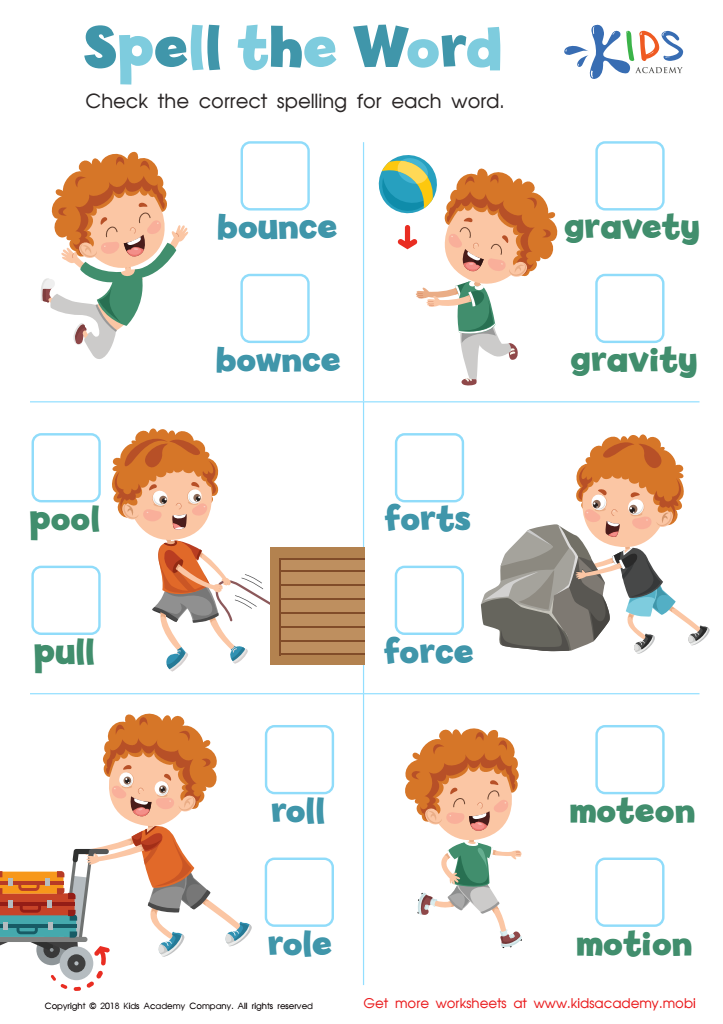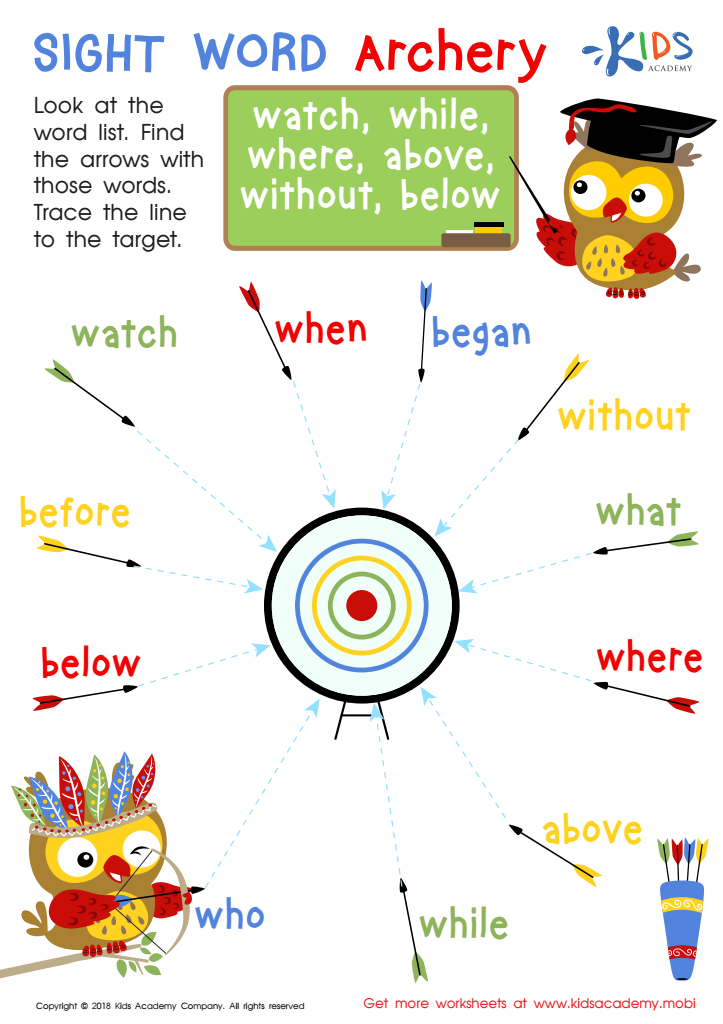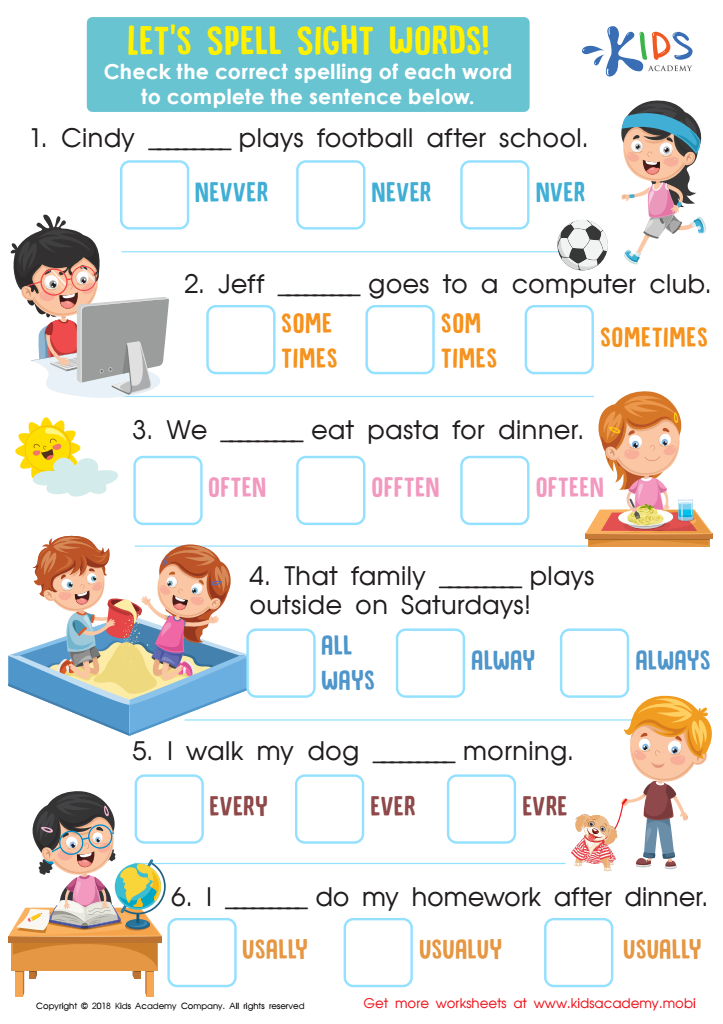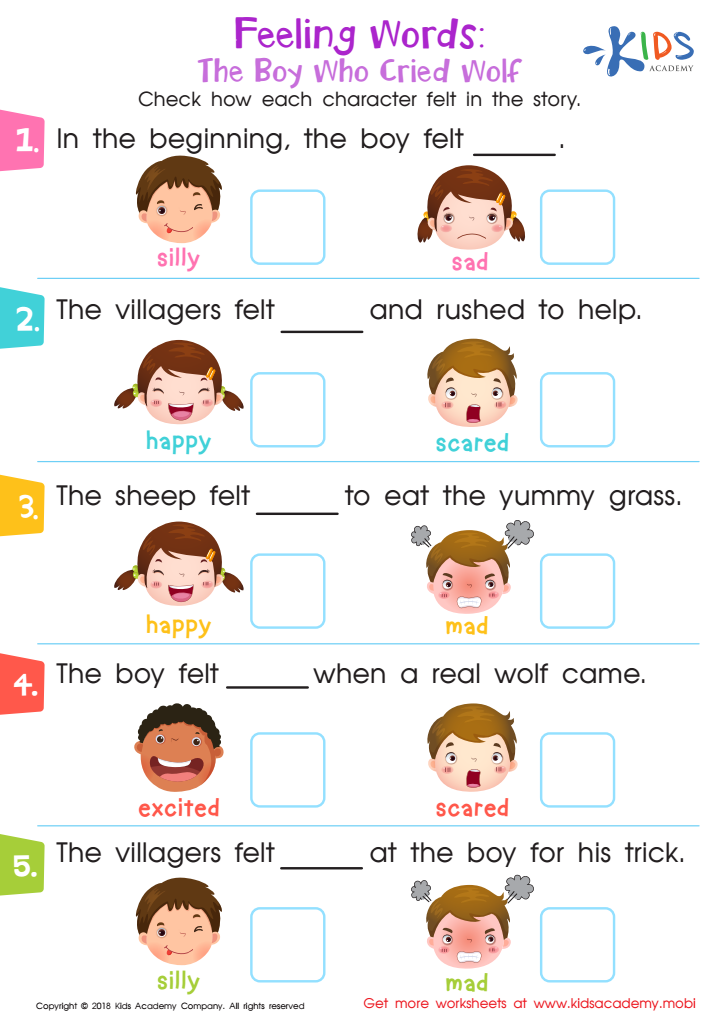Reading skills development Building Vocabulary Worksheets for Ages 3-8
4 filtered results
-
From - To
Explore our engaging Building Vocabulary Worksheets designed for children aged 3-8, aimed at enhancing reading skills development. These carefully crafted resources promote vocabulary expansion through fun, interactive activities. Each worksheet encourages young learners to explore new words, comprehend meanings, and apply their knowledge contextually, fostering a love for reading from an early age. With a variety of formats, including matching games, fill-in-the-blanks, and word searches, these materials cater to diverse learning styles. Perfect for both home and classroom environments, our Building Vocabulary Worksheets make learning enjoyable, ensuring children build a strong linguistic foundation for future reading success. Start your adventure today!


Spell the Word Worksheet


Sight Word Archery Worksheet


Let's Spell Sight Words Worksheet


Feeling Words: The Boy Who Cried Wolf Worksheet
Building reading skills and vocabulary in children ages 3-8 is essential for their academic success and lifelong learning. During these formative years, children are like sponges, absorbing language and concepts that lay the foundation for future literacy. Enhanced vocabulary significantly impacts a child's ability to understand and communicate effectively. This, in turn, fosters confidence, encourages a love for learning, and promotes social interactions.
Moreover, strong reading skills correlate with better performance in all subjects. Reading is not just about recognizing words; it encompasses comprehension, critical thinking, and the ability to express oneself. Teachers and parents play a crucial role in creating a rich language environment, where children encounter new words through conversations, stories, and interactive activities. Regular reading sessions and discussions about books can dramatically expand a child's vocabulary and enhance their understanding of language nuances.
Additionally, building vocabulary at an early age can mitigate future learning challenges linked to reading difficulties, such as dyslexia or delayed speech. Ultimately, by prioritizing vocabulary development, parents and teachers equip children with the necessary tools to thrive in school, build their self-esteem, and develop a lifelong passion for reading, which is vital for success in today’s literate world.
 Assign to My Students
Assign to My Students















.jpg)










